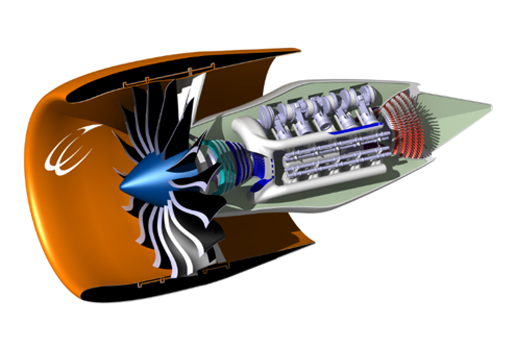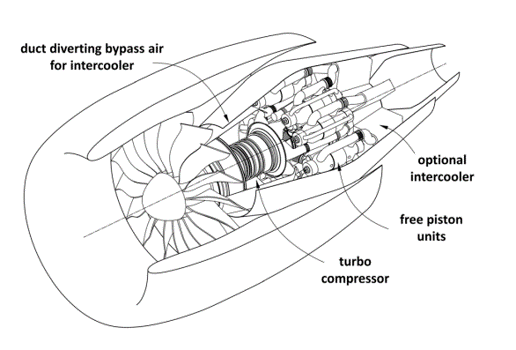
Propulsion System Design
Florian.Winter[at]bauhaus-luftfahrt.net
+49 (0) 89-30 74-84934
MINIMAL (MInimum enviroNmental IMpact ultra-efficient cores for Aircraft propuLsion) contributes to a radical transformation in air transport by showcasing ultra-efficient low emission technologies that can greatly reduce the climate impact of aviation.
MINIMAL attacks the major sources of CO2 and non-CO2 emissions in aeroengines. New propulsion systems fuelled by hydrogen or sustainable aviation fuel (SAF), and using composite cycle engine (CCE) technology, will offer unparalleled thermal efficiency and performance flexibility for climate-friendly operations.
Three main types of piston engines will be analysed in corresponding CCE concepts: a crankshaft based piston engine, a free double piston engine and a opposed piston engine. Integration studies on the CCE architectures will allow the quantification of performance benefits in different application scenarios covering a representative range of typical missions. This analysis will directly connect the climate response to engine performance and emissions. The end goal is to identify the engine design options giving minimal climate impact.
The MINIMAL conceptual studies are accompanied by experimental proof of concepts activities (TRL 3) with special focus on piston engine low-NOx hydrogen combustion technology as well as heat-management systems that exploit the cooling potential of hydrogen.
As part of the EU-funded project MINIMAL, BHL is investigating the design of a Composite Cycle Engine (CCE) with a free-double-piston engine in various application classes with regard to minimum climate impact. Furthermore, BHL acts as aircraft integrator and is responsible for the aircraft design of the reference systems at the current and predicted evolutionary technology level. Finally, BHL provides air traffic development scenarios and corresponding predictions on fleet compositions for a global emission inventory.
Coordination:
Chalmers University of Technology
Scientific partners:
Aristotle University of Thessaloniki
Industrial partners:

The project is funded by the research and innovation program Horizon Europe under grant agreement No. 101056863.

This work is co-funded by UK Research and Innovation (UKRI) under the UK Government's Horizon Europe Funding Guarantee No. 10040930.





